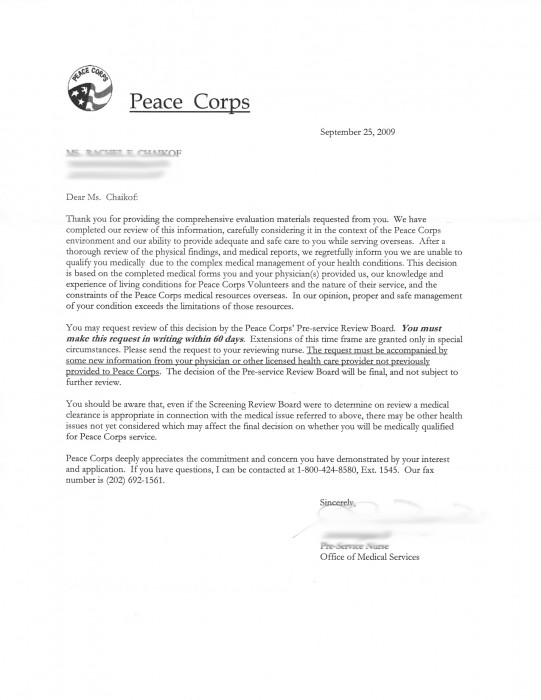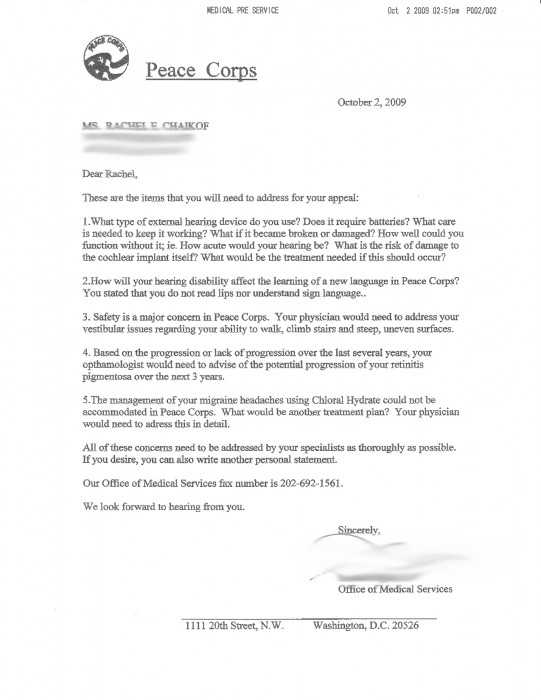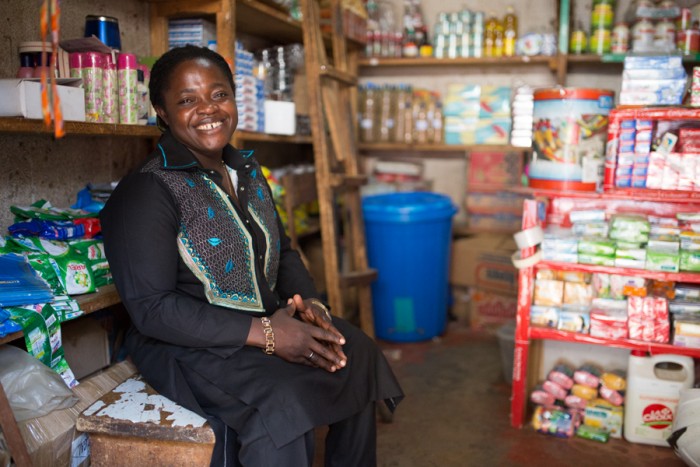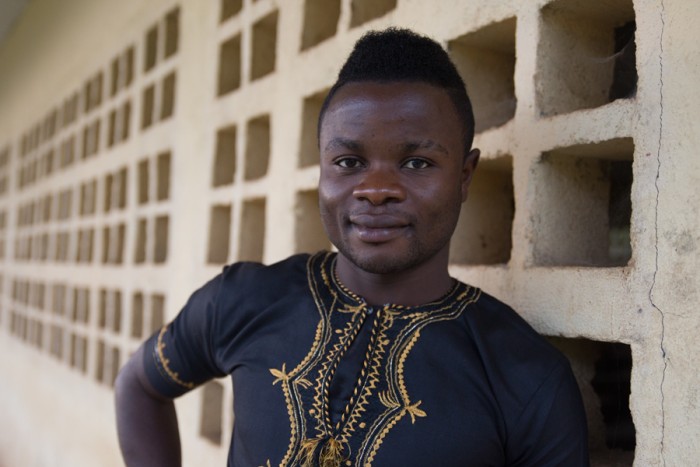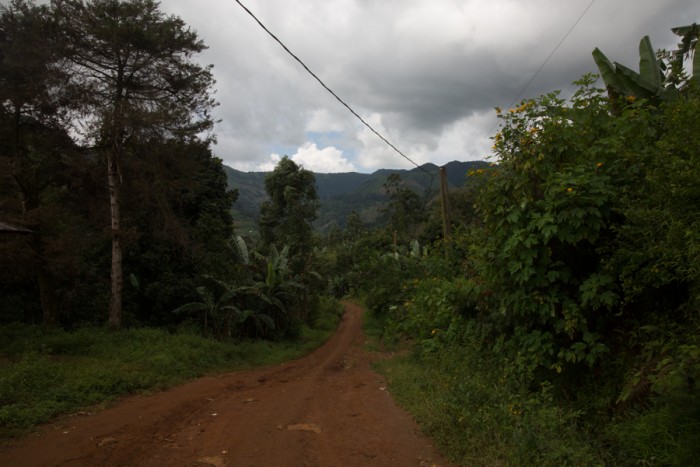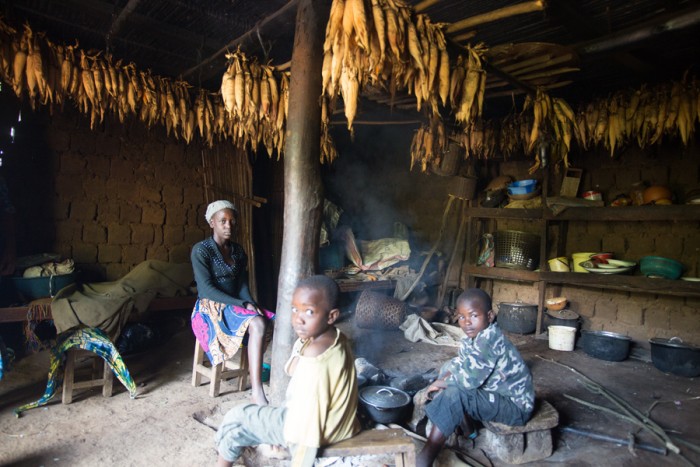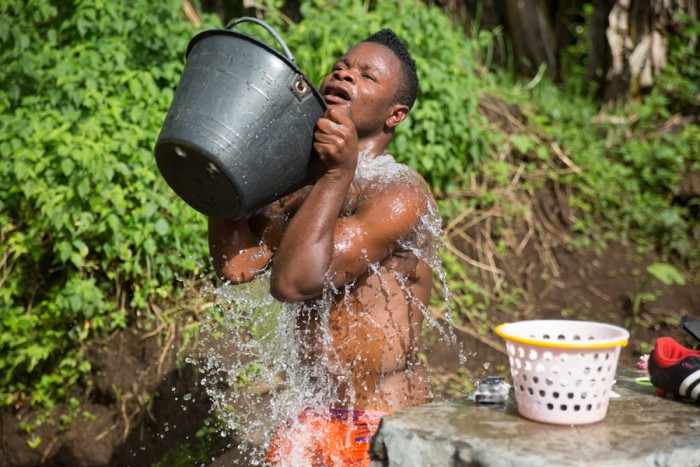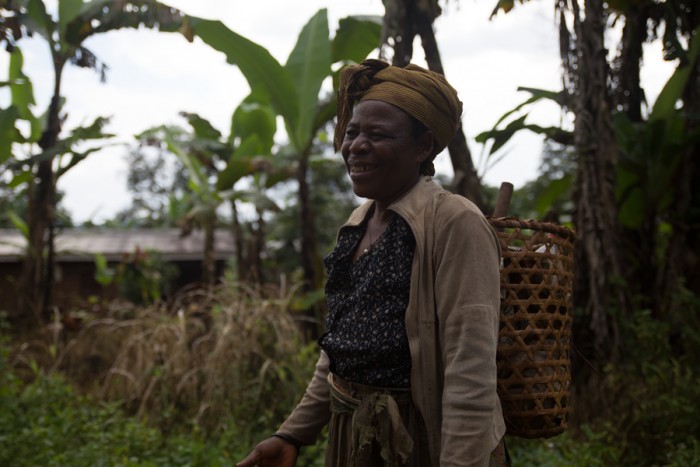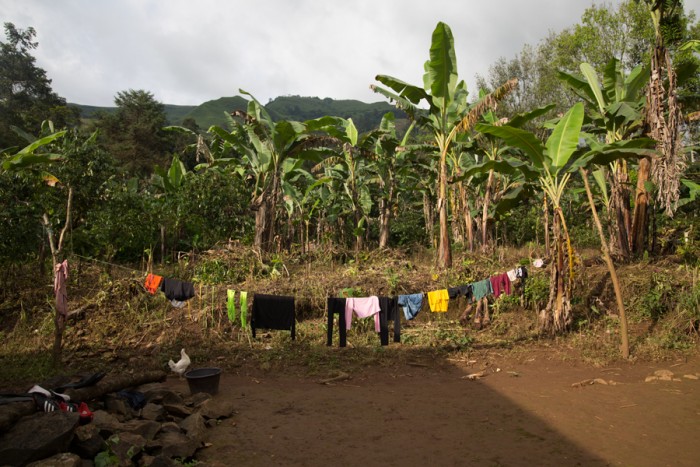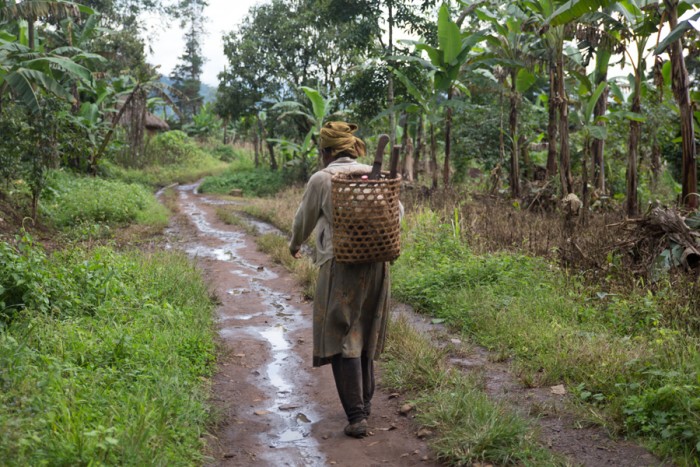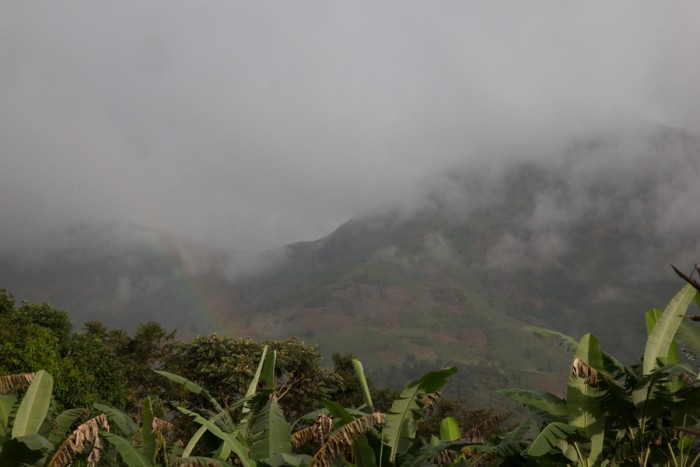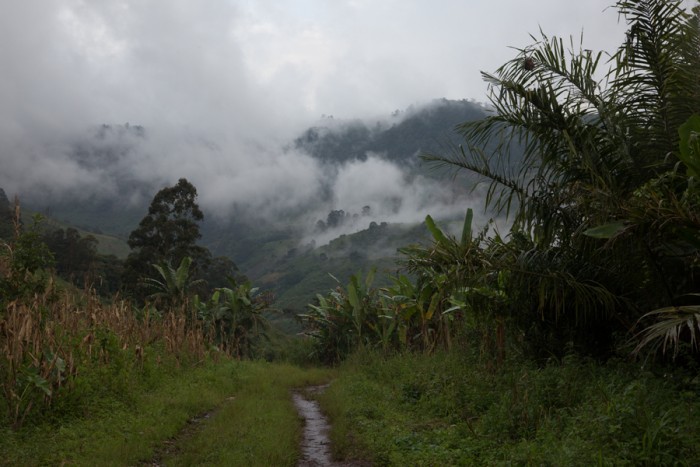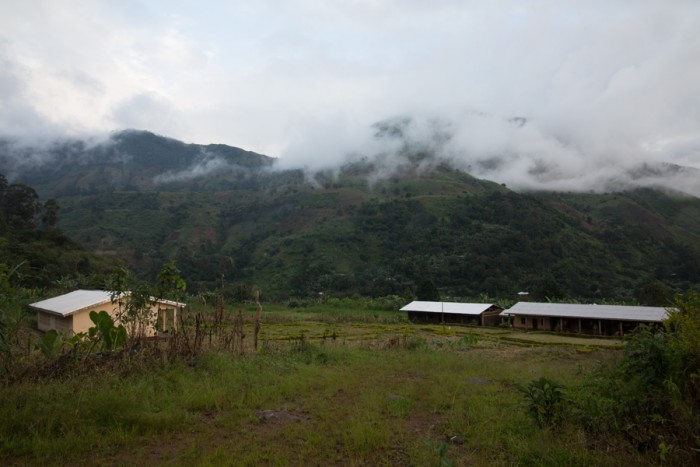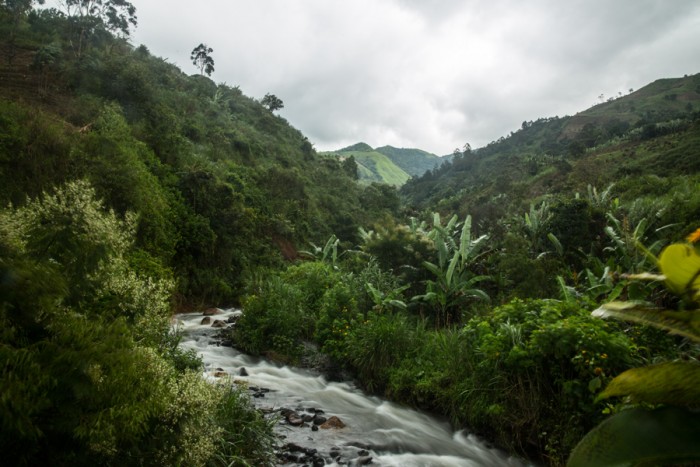October 3rd, 2016 by Rachel | Tags: Disability, Peace Corps, Sexual Reproductive Health | No Comments »
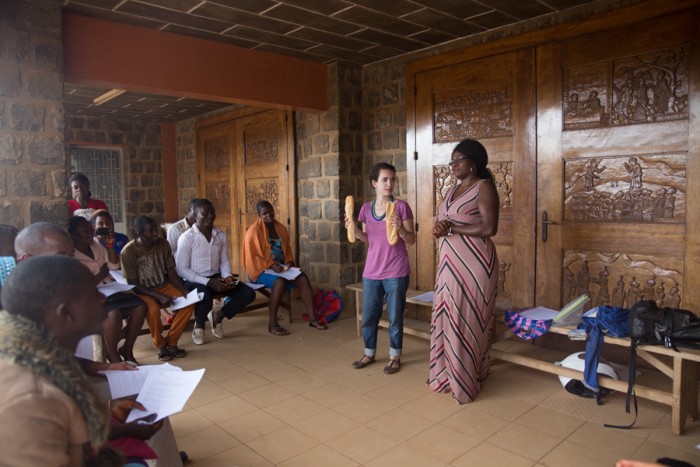
In the past couple months, I hosted several more Sexual Reproductive Health workshops. In this post, I am going to share two of the workshops because I was faced with a similar issue at both workshops. One workshop was done with a large group of deaf people. Regina Awafe, a deaf interpreter who also runs a deaf group, brought in 22 deaf people. While at all Sexual Reproductive Health workshops, we do condom demonstrations which includes putting a condom on a banana, condom demonstration could not be done at this workshop because we were on a church premise.
Like the HIV prevention workshop, which was done several months ago, administering the tests were difficult due to their very low literacy levels. This was because of their lack of exposure to language when growing up. Regina did her best to help them translate the words to sign language but the results still show that most could not grasp the language on the tests. For example, on the post-test, majority of the females circled “yes” under the question “If your partner said, “No” to sex, is it OK to force your partner to have sex?” Thus, I cannot provide the results because they do not show what knowledge they have truly gained. The most important thing is that they were truly attentive and interested by asking several questions. There were also some heated discussions about sexual consent.
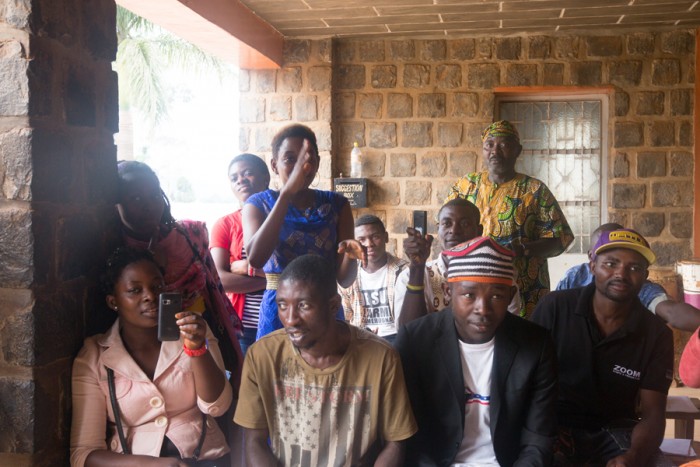
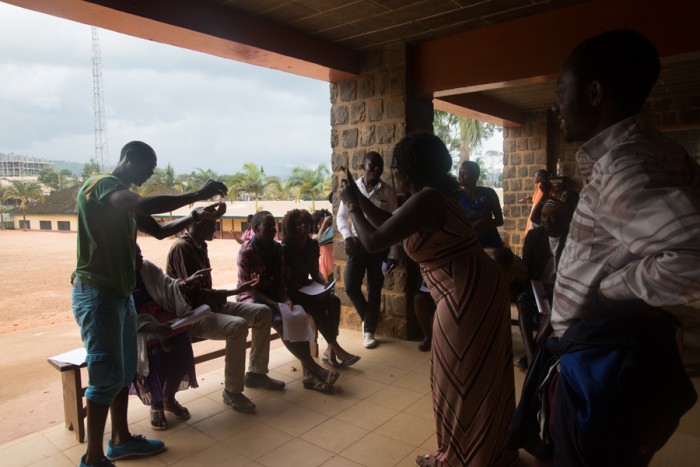
The other workshop was done in partnership with a local organization. Antonia Bih, one of my work partners who volunteers at my host organization, Coordinating Unit of Association of Persons with Disabilities, put in me in touch with Adah Mbah, the founder and executive director of Women of Hope and we coordinated a sexual reproductive health workshop for 25 women and girls, both with and without disabilities. We were also not able to do condom demonstration for religious reasons. In this case, there was a large group of Muslim girls and they would not permit the demonstration due to their religious beliefs.
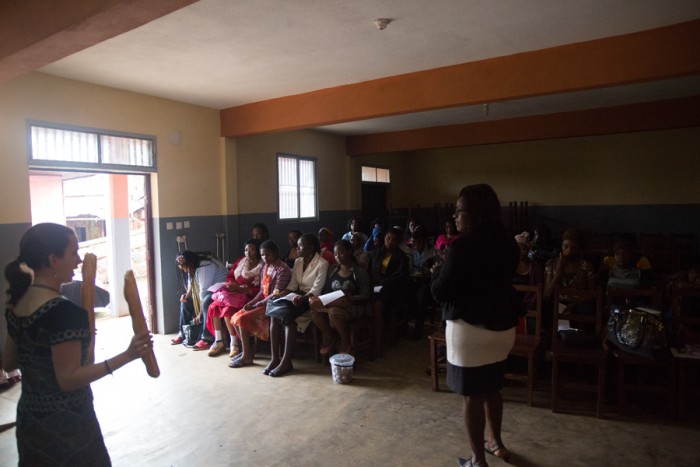
On the pre-test, 10 scored 70% or better and on the post-test, 12 scored 70% or better. Two scored 90% or higher on the pre-test and four scored 90% or higher on the post-test including one 100%, which that person scored 92%. There were some noticable jumps. 10 scored 8 to 10 points higher on the post-test than the pre-test. It’s important to note that four did not complete the post-test. What is interesting to point out is that 6 females circled “yes” to the question “If your partner said “No” to sex, is it OK to force your partner to have sex?” Three of those who circled “Yes” on the pre-test, circled “No” on the post-test. One of them circled “Yes” again on the post-test and two didn’t respond on the post-test.
In Cameroon, while the population is very diverse with a percentage of people being Christians, another percentage of people being Muslims and a percentage being animist, many of those who are Christians and Muslims take their religion seriously and therefore, sometimes we have to make adjustments to our education to respect their beliefs.
October 2nd, 2016 by Rachel | Tags: Peace Corps | 1 Comment »
“It always seems impossible until it’s done.”
“A winner is a dreamer who never gives up.” – Nelson Mandela
As I reflect on my two years of Peace Corps service in Cameroon, I think back to the very moment that happened exactly seven years ago, in September 2009. I was a very young adult who was a senior in college and had such a big hunger to see and change the world. I applied to join the Peace Corps but then I was denied solely based on my disabilities. I want to share my rejection letters which I happened to save, because they symbolize so many things. The decision made by one person in the medical office was wrong. The decision was so clearly wrong.
(Click on the letters to view them in larger size)
A person who seemingly had so many complex medical conditions and disabilities on paper is about to successfully finish her two years of service in a country with very challenging living conditions.
The letters do, however, also represent a blessing in a disguise. Because of these letters, I contacted Mobility International USA (MIUSA) when I was reapplying to join the Peace Corps three years ago, in 2013, looking for support and advice on reapplying as a person with disabilities. I contacted them simply because I wanted to make sure I would not be rejected again. When I received an invitation to serve in Cameroon and I contacted MIUSA again to inform them that I had been invited and thanked them for their support, they connected me to a person with disability living in Cameroon. This person with disability then became my official Peace Corps counterpart, Ruth Acheinegeh. My work assignment, working with persons with disability by providing them greater access to health education, happened only because of this very rejection letter. It was the best work assignment I could have received. I have never worked with anyone who is more motivated than the work partners with whom I established a great rapport.
More importantly, these letters forced me to wait for something so special. If I had not waited for an additional five years to serve, I would not have met the love of my life, Alex, with whom I plan to live indefinitely when we return to the US. We created so many memories together in the past two years that we will treasure for many years to come. Meeting Alex happened because of these letters.
I am so eternally grateful that I made the decision not to give up and try again. Choosing to reapply to join the Peace Corps was obviously the best decision. As I look back on my two years of service, pulling that door open that was once shut to me has clearly brought so many wonderful gifts.
I can live no longer regretting that I didn’t fight for my right to serve as a person with disability and that I never had the opportunity to live my dreams. While I can live no longer holding a grudge for these very letters, my story teaches real lessons.
No matter how complex the disabilities may appear on paper, they do not define a person’s life. They do not equate to obstacles and prevention from doing work successfully and living safely. A Peace Corps Medical Officer said to me during my service, “I didn’t know about Usher Syndrome until I looked at your medical files. I looked it up and learned about it. Thank you for teaching me about it. I now know that when I review applicants, a person like you who has complex conditions can serve successfully.”
Living in Cameroon with cochlear implants posed no obstacles. The hearing devices were so durable that they lasted throughout the two years after having been beaten up by dust and downpouring rain. I was still able to get my hearing tuned up through the internet, working with an audiologist 6,000 miles across the Atlantic Ocean in the US thanks to the innovation of remote MAPping, also known as telepractice. I passed the French exam on my second day in Cameroon, which meant that, unlike the majority of volunteers in my training group, I did not need to take any additional exams to prove my competency in French. Even though I passed the exam on my first try, I still took French classes to continue to improve my language skills. This meant that my hearing disability did not in any way pose any barriers to learning a language. Vestibular issues – Well, I climbed up to the top of Mt. Ngaoundere one month after I arrived in Cameroon. I think that pretty much says if this girl can climb a mountain, then vestibular issues are really nothing. Even though I can’t walk on a balance beam, the world is not full of balance beams. Regarding losing my vision – Legally blind people have successfully served in the Peace Corps, including one woman who served from 2006 to 2008 in Extreme North, Cameroon. If a woman who is legally blind like her can serve, then there is no reason why a person who is slowly going blind can’t serve too. Finally, as for migraines, this medical condition is so common that there is a wide variety of medication options and, in my situation, I get them very rarely, and they’re easily treated with various types of medications. The bottom line is that no matter how complex the medical conditions may appear on paper, persons with disabilities find ways to tear down the walls by finding alternative ways to function in their own bodies.
I want the general population to know that they should not underestimate the abilities of persons with disabilities. I also want to teach them that disability should not be an excuse to say “no” to an activity one wishes to do, especially when it comes to traveling and living abroad, including in the most difficult conditions.
I also want persons with disabilities to know that they should not underestimate their own abilities too. They should be able to realize they can push themselves against their own barriers. I want them to be able to use my story as a case study. If they apply to join the Peace Corps and face obstacles in getting accepted because of their own disabilities, I want them to take my story and say, “If she was able to serve successfully, I can do it too.”
When children with disabilities tell their parents that they dream of serving in the Peace Corps or even simply traveling and living abroad and their parents say “no” because they fear that their disabilities can hinder their ability to do the work successfully and live safely, I want these children with disabilities to be able to take my story and show it to them and say, “You can’t say ‘no’ because if this person who is deaf and going blind was able to do it, I can do it too.”
For all people, both with and without disabilities, we should know that if we face a rejection, we should not allow that roadblock to stand in our way. Being persistent and trying again are the best two actions we can take to achieve what we desire to do. It’s so easy to say, “I don’t think it’s worth the time to try again because I’ll probably fail again.” We should instead say, “I am going to try again because I’ll probably succeed this time around.” If we don’t try again, there is always a chance that we could be missing out on reaching our dreams.
I want my story to serve as a weapon for persons with disabilities to fight for their right to achieve the dreams they wish to dare.
When I return to the US, I hope to share my story with as many people as I can so that we can open up more doors that have been shut to persons with disabilities.
Also — I would like to thank whoever was in the medical office in 2013 and 2014, reviewed my application and decided to give me the chance to serve in the Peace Corps. You obviously made the very right decision, and I am very thankful.
October 1st, 2016 by Rachel | Tags: Disability, Peace Corps, Persons with, Persons with Disabilities of Cameroon, Photography | No Comments »
During the last seven months of my Peace Corps service, I am featuring photographs and stories of several persons with disabilities living in Cameroon. All the photos are part of a series called “Persons with Disabilities of Cameroon.” The goal of presenting photographs and their stories is to create better awareness about the plights that persons with disabilities face in a developing country. When I return to the US, I hope to exhibit this series in a gallery and publish a book to educate others about persons with disabilities living in developing countries as this topic is so rarely discussed in the media.
Ruth Acheinegeh has been my official Peace Corps counterpart for the past two years. She is a leader for the disability community, being the president of Northwest Association of Women with Disabilities, President of Special Needs Entrepreneur, and Treasurer of Coordinating Unit of Association of Persons with Disabilities. She traveled to the US twice to receive trainings from Mobility International USA on how to lead the changes in disability rights for women with disabilities. She has also been to Turkey and Brazil to attend conferences on women’s rights. Ruth shares her struggles about being a leader for disability rights in Cameroon.
“I am physically challenged. I use two crutches to walk. My left leg is extremely short than the right one. I also use braces to help with my movement. I became disabled when I was three years old and I was told it was quinimax injection which was processed at the hospital. I was later on told it was polio. ”
“From when I was growing up in the Northwest region, most people that were outspoken were men and among these men were men with disabilities. So we women with disabilities find very difficult to discuss our own personal issues. So that is one of the reasons I took upon to see how women could have a space of their own. I got an opportunity to do it though leadership training with Mobility International USA in 2010. That actually gave me skills to start up Northwest Association of Women with Disabilities in Bamenda. But it was not easy for women with disabilities to come together to share their experiences. But I keep insisting one on one with each women to advocate. In 2012, we were able to have about 30 women who accepted to have a place of their own to talk with each other. But the most difficult challenge I face is having these women portray leadership skills. Their self esteem is still very low. They still lack capacity building. Their living standard is still very low. This makes them not to be socially active in development activities for their communities. But then a few of them are able to carry out activities. Diversity among these grassroots women is also a big challenge. Environmental barriers is also keeping these women behind. A good number of these women lack assistive devices. So this make my struggle for inclusion a big big challenge.”
“Personally my challenge has been the fact that I am a woman and a woman with disability limits me to have partners to promote my work in communities. Also, I use my business finance for most of my activities. It also makes me not to have more time for my business. And also not having more time to advocate.”
September 29th, 2016 by Rachel | Tags: Peace Corps | No Comments »
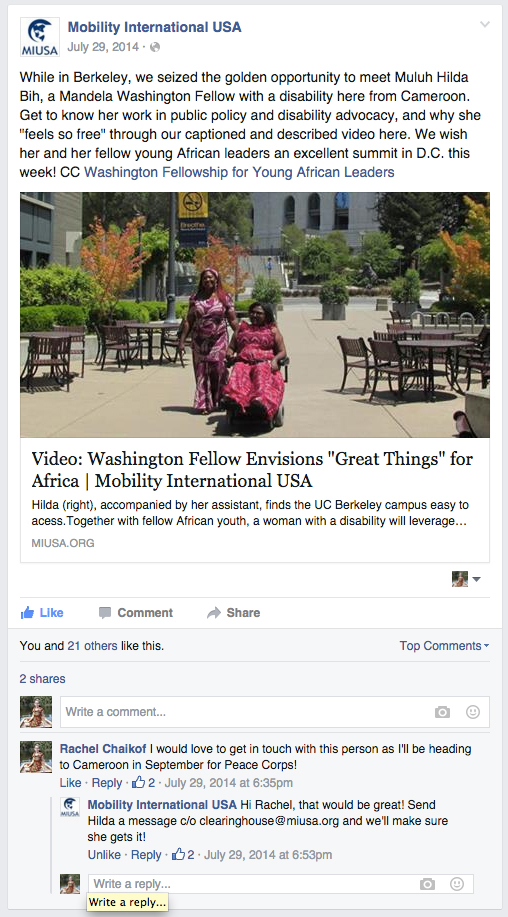
Social media has the power to make connections happen much further than simply corresponding with others through the internet. Social media can often shape one person’s life. It shaped my Peace Corps experience. A couple months before I left for Cameroon two years ago, as I was scrolling down my newsfeed, I came across a post by Mobility International USA featuring a video of a woman with disability who happen to come from Cameroon and was visiting the US for Young African Leadership Institute (YALI) as a Mandela Washington Fellow. Because Cameroon was the first word that caught my eyes, I immediately wrote a comment asking to get in touch with her. I wanted to get in touch with her only because I wanted to learn more about Cameroon and the situation of persons with disabilities in the country. Within a couple days, I was in touch with Hilda Bih.
In the first e-mail response, she wrote, “I work as a journalist in Cameroon, and with a group of women and girls with disabilities in the North West Region. We are still struggling to set it up to represent and empower women with disabilities. It’s called North West Forum for Women and I’m sure your experience will be very helpful to us. I have a few Peace Corps friends in Bamenda and it will be amazing if ever you choose to be posted there.”
We continued to correspond for the next several weeks. She checked on me to see how I was doing in preparing for the move to Cameroon. In another e-mail, she wrote, “I hope you are doing well and getting ready for your trip to Cameroon. I join you in hoping and praying that you will be posted to Bamenda, your help will be much appreciated, but I guess your office will decide where you are needed most.”
Hilda was then featured on NPR a few weeks later sharing her story of growing up with a disability in Cameroon and struggling to go to school. Her story on NPR, along with my correspondence with her and also, Ruth, my counterpart who I happened to connect via e-mail too prior to my two-year service, motivated me to express my interest in being posted in the Northwest.
Here I am now in Bamenda, Cameroon. I have been very fortunate to have a wonderful program manager at Peace Corps who went above and beyond my request. On my second day in Cameroon, I only requested to be in the region of Northwest so that I could have opportunities to do secondary projects with Hilda and other persons with disabilities. However, I have been placed right in the heart of Bamenda working directly with persons with disabilities including Hilda and also Ruth.
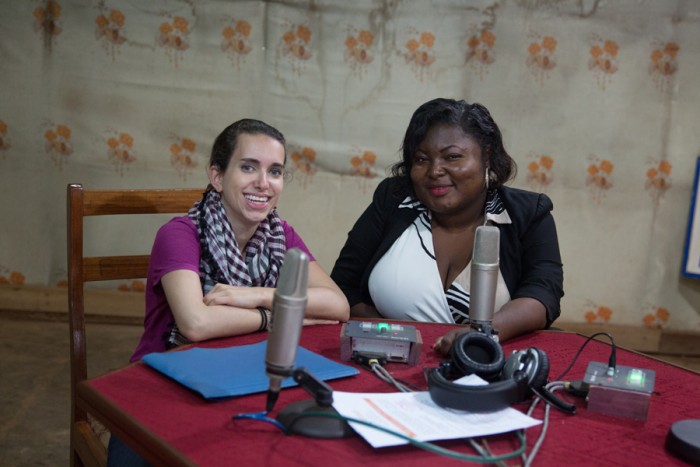
In the past two years, I’ve had the pleasure and privilege to speak regularly on one of Hilda’s weekly radio programs, Reaching Out to Persons with Disabilities, at CRTV (Cameroon Radio Television – Cameroon’s national radio program). We’ve spoken about various issues in the disability community in Cameroon including poverty, education, water access, transportation, employment, health, and legal rights.
Moreover, Hilda recently invited me to speak on another program called “Women on the Move.” It’s a weekly program featuring and interviewing one woman. I talked about my two-year Peace Corps service, my living with disability, and which woman served as my role model for women’s rights, which I of course named my maternal grandmother. It was a moment that had me really reflecting deeply about my life in the past two years.
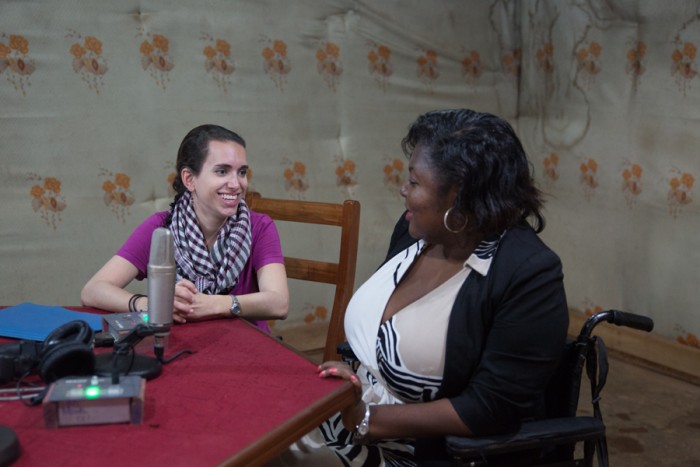
September 29th, 2016 by Rachel | Tags: Peace Corps | No Comments »
While still living in the same country, moving from a village to a town or city can still be a cultural shock for many people. In Cameroon, living in a village is so different from living in a town or city. I interviewed a young man, Cyrille, who is from a village named Yang and moved to Buea to study at University of Buea. Cyrille shares the differences of living in Yang and Buea and the challenges he faced when moving to Buea. Thank you to Peace Corps Volunteer Katy Shawkey who assisted with the interview by introducing me to Cyrille and writing the answers to my questions.
Tell me about growing up in Yang (Njinikom subdivision), village life (i.e. Food, school, health, free time, etc)?
First of all growing up in the village was hard. For me especially, where I only knew my mom who is the only one who has been like my mom and my father. So, like going to school here, I went to government school. Government had made primary education free. It was free but it was still difficult to afford it because just 1,500 CFA was the PTA (Parent Teacher Association) fee, and affording that at that time was still very difficult. However education wise, I still managed to survive, though it was hard, I survived. I did not do all my primary education here. Half here (class 1-3). Then I had to go to Southwest, in another village to finish. I had to skip class 4, continued class 5,6,7 and was done. Came back and started secondary still with the help of my mom, but this time at least my brother, Horatio, came in. So it was like the 2 of them who took me into secondary school. Getting food too was another problem. But my mom exceptionally, has always been the hardest worker. So we’ve never lacked food, like the basics. It’s been hard, but as hardworking as she is, we have never lacked food in our house. Although the food is just basically village food. With my free time, I would go to the farm with mom. We’ll do some farm work. Till together, plant together, and harvest together. Transportation, the same, together. Then also just part of my free time for leisure, I would go play football and maybe just take a walk around because I’m not good at visiting people. I would play around with my friends, play football together. So basically that’s what I did with my free time. On holidays, I would go to the Southwest with my brothers, work with them and that’s also how I got money for my school fees and other school needs. That was the period between, during secondary school.
Why and how did you decided to move to Buea?
So with the “why” first, I decided to go to Buea. It’s first of all a childhood decision, a thing I’ve always looked up to. Because to us, the so-called Anglophone, Buea has been the only university. That is the university that we of the anglophone region most likely went to. Equally because I loved to have a university education. That’s also a reason that motivated me to go to Buea. I think that covers everything for why, because I have no other special reasons for going to Buea. Then how I got to Buea. Getting to Buea was also hard. It was hard because, first of all I was unable to rent a house and it was very difficult for me to get to Buea. I first of all left village to Muenge with my brother. It was getting close to the start of school. And at that time, I was still not sure of having accommodation in Buea. So finally when I had my fees, my school fees, I went to Buea from Muenge. It’s a short distance because they are all in the same division. So I reached Buea on the 13th of October 2014. So with the help of my cousin, whom I had hoped to live with him without question, he directed me on how to pay my fees and it was paid. So from there I moved down to Limbe, still because I had no accommodation in Buea. In Limbe I was with one of my elder brothers, stayed with him for two weeks while still attending school in Buea. Then after the 2 weeks I had to stay with another guy for two weeks in Buea.
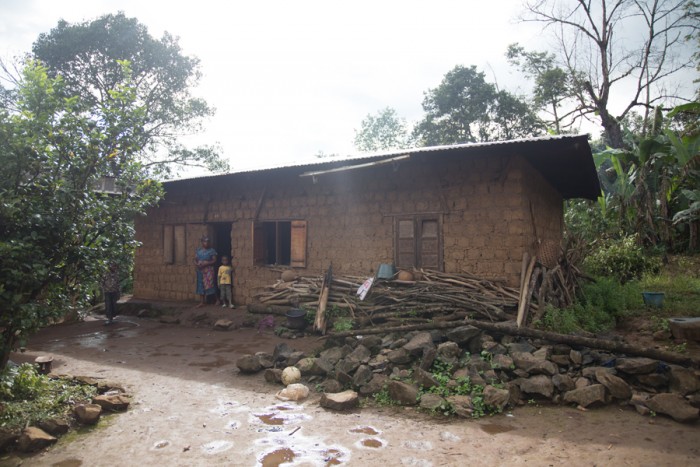
A home in Yang
How was the transition between village life and city life?
I’m sorry but Buea is not even a city. As I was already saying, being in Buea, let me first of all put it in, like normally away from home, so it’s not easy. It’s not been easy. I think its still not going to be easy. In terms of accommodation in Buea, you have to pay your rent out, like I have not survived through rent, I’ve survived through like living with people, from one person to another and then…certainly I’m missing my place and I always want to get back, and I do not hesitate when I have the least time to…like whenever I’m free, I’m home. Whenever I’m free, I come back.
What are the differences between living in village versus Buea?
Yeah so normally, getting food, like getting accommodations too, it’s a difficult thing because Buea is one of those towns in Cameroon where life is expensive. So everything is hard to get if you’re not a native, if you’re not rich enough, you can be going poor in Buea. So, like home, everything is readily available, there is food there is everything. What you need, we buy. We buy just things you can buy like oils and little things like spice, and like every other thing like food stuff, it’s there. So like in Buea, everything is bought. You’re not farming down there. It’s all money. For the first year that I had and half of the second year, I didn’t really have like food problems in Buea because I had one woman and she helps me when I’d talk to her. When there is no food, she can have and give. The worst thing of it all, is that all that difficulty would result in me being like worried and disturbing me in the head and all that. Worrying about money makes it hard to focus on studies and other things. Then also living in an environment where you are not really, which does not really suit you, also affected me. The heat and then the specific house which I was living in, and the distance there from school sometimes you miss classes. Sometimes you miss out on unannounced tests, and sometimes you go late and other things because of the distance. So, if I have to compare between the village and Buea, Buea has its advantages, like you’ve got all the schools there, the higher institutions, which I am out for. [Buea is] more expensive than the village to live in, like more open than the village. There’s another difference, Buea is not only a town. It’s also in a different region. The culture of the Southwest is very different from the culture of the Northwest. So the Southwest is almost like a cultureless people, I mean they do have but like it doesn’t sum up to even, not even a quarter of what I have here. So, it’s different, it got its own things, and then the village is very conservative and Buea is more open, then apart from those few difficulties, I get going in Buea.
